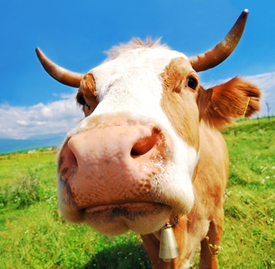Global Scans · Lab-grown Meat · Weekly Summary

- Over the next decade, lab-grown meat will evolve from niche novelty to mainstream staple. Futurist Speaker on AI Leadership, Future of Work, Futu
- From 2029-2032, technological advancements will enable cost reductions that make lab-grown meat competitive with mid-range conventional products. Futurist Speaker on AI Leadership, Future of Work, Futu
- Over the next decade, lab-grown meat will transform from niche novelty to mainstream staple. Futurist Speaker on AI Leadership, Future of Work, Futu
- There's no evidence that lab-grown meat is unsafe or unhealthy, nor that it's a business threat to the massive global meat industry. Sentient
- Lab-grown meat has been described by the IPCC, the world's leading climate body, as an emerging technology that could help substantially reduce emissions. Unearthed
Last updated: 14 December 2025
